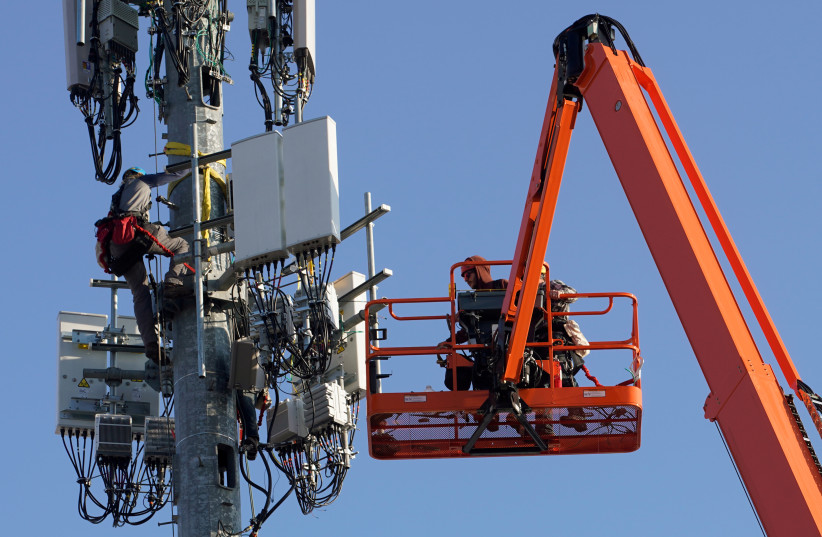Israel urged mobile firms to expand the deployment of fifth-generation sites to allow for 'smart' stadiums and hospitals on Wednesday, as the country launched its second 5G tender.
Communications Ministry director-general Liran Avisar Ben Horin said in a statement that smart traffic lights using 5G would prevent congestion and accidents, while patients will be able to receive immediate medical care remotely.
"I call on the cellular companies to deploy 5G sites all over the country to improve the quality of life of their customers and place Israel at the forefront of global innovation," she said.
5g technology and its potential
Fifth-generation technology is 10 times faster than widespread 4G and the ministry said rolling it out would improve Internet access in dense city centers.

It said cellular operators that share a network will be allowed to participate in the tender alone or by submitting a joint offer, but did not say how much the new frequencies would cost mobile companies.
The ministry said it will allocate advanced frequencies to mobile operators in the ultra-fast 26 GHz range "to respond to the various needs of cellular communication in Israel."
Israel allocated three 5G frequencies - 700 MHz, 2.6 GHz and 3.5 GHz - in an auction in 2019 which have since been deployed by mobile operators and are all marginally profitable.
In its previous tender, heavy incentives such as government grants were be provided to cash-strapped mobile firms to participate and the amounts raised were a fraction of the hundreds of millions of euros seen in Europe.
